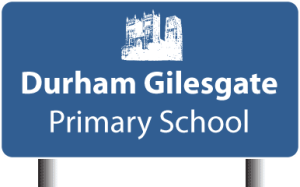Intent
At Durham Gilesgate Primary School we recognise the importance of Science as a core subject and as something which we can see in every aspect of daily life. We give the teaching and learning of Science the prominence it requires.
The science curriculum has three important elements; the first is about increasing pupils’ knowledge and conceptual understanding of our world, the second area is about developing the skills of scientific enquiry and the third element is known as Science Capital and this relates to the practical uses and application of science in the world around us.
In Early Years Foundation Stage science is found in Knowledge and Understanding of the World and this is the starting point for both knowledge and enquiry-based learning. We aim to develop the natural curiosity of each child, encourage respect for both living organisms and the physical environment and provide opportunities for critical evaluation of evidence. As children get older there are clear links to the use of maths in order to interpret and present data. English skills are also important as children will need to be able to read fluently and understand subject specific scientific vocabulary which they will encounter when both reading for research purposes and writing as a means of recoding their learning.
Implementation
We have a science curriculum which meets the requirements of the National Curriculum. Science is taught as a discrete subject but where cross curricular links can be clearly made that will happen.
Our science planning has been revised and sequenced to focus on the order in which knowledge, concepts and skills are developed. Implementation is supported by a science scheme written and published by TREDU1 but we will always seek to adapt planning and use other resources and opportunities where available. For example, we are the lead school in an Ogden Trust Schools Partnership and through this we have developed our sequencing of learning, our physics teaching and the range of resources that we use to support learning. We always seek to enhance the science curriculum through partnership work, visits, visitors, STEM ambassadors and links to Durham University. By doing this we seek to inspire our children and raise their aspirations as this is one part of our curriculum driver Heritage and Opportunity. Encouraging respect for living organisms and the environment is part of curriculum driver Values. We have also identified subject specific (tier 3) vocabulary that we have introduced and which children learn and use in their spoken and written language.
The science curriculum and sequence of lessons taught will always have an element of scientific enquiry.
This might be:- forming, asking and answering enquiry-based questions, making observations, comparing, grouping and sorting objects, taking measurements and recording these, using secondary sources for research, designing comparative and fair test, recoding and reporting findings, the analysis of data and the use of this to draw and support conclusions.
Impact
We expect that the majority of children will achieve at age related standards in science at the end of each year. We recognise that some children may not achieve this standard but we will expect that they have made good progress from their starting point. We also recognise that some other children will exceed age related standards and we will have deepened learning for these children.
Children’s knowledge will build progressively over time and both teachers and parents will be able to see this in their science books and other work that they produce, similarly their work will reflect the new subject specific vocabulary that they have learned. By talking with children, we will be able to gauge their understanding and application of enquiry skills and their ability to make links between subject knowledge learned over time.
1(Tom Robson Education. Tom is an ex HMI, Headteacher and senior local authority advisor for science. He advised the DfE on the current science curriculum)
